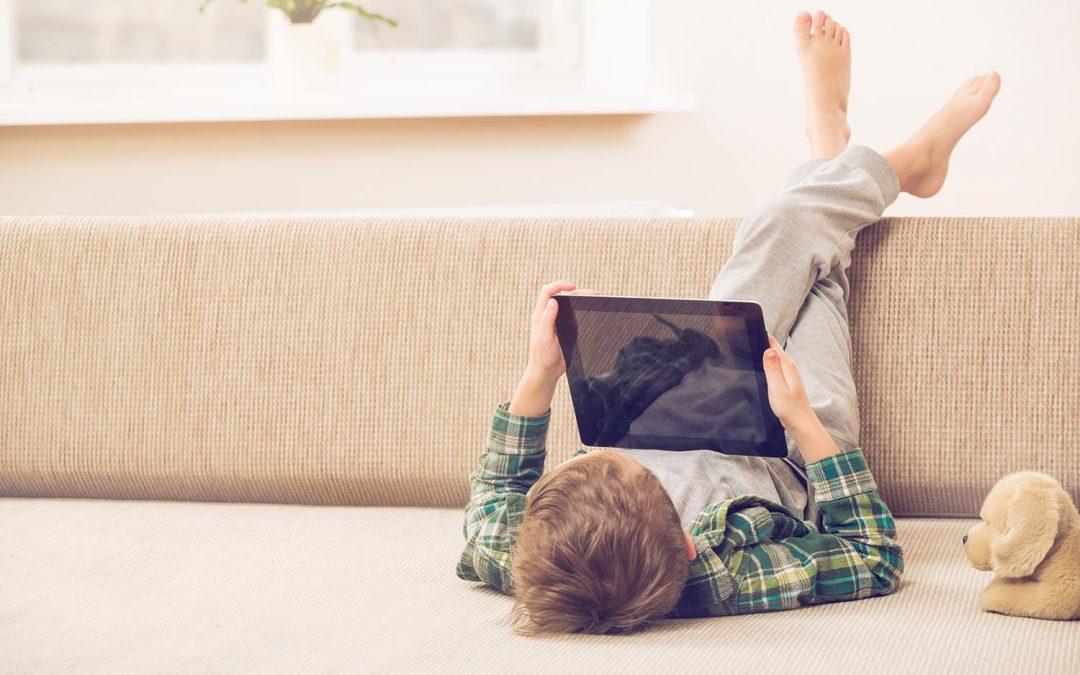There is so much information on the topic of technology and children and the really confusing thing is that it doesn’t all say the same thing! On top of that, irrespective of what our personal views or beliefs are we now have schools insisting that children BYOD – for those of you who haven’t met this acronym, yet this means ‘Bring Your Own Device’. Even schools can’t agree on what is and isn’t ok, some say that students need to have a laptop, some an iPad or similar and others say they can have all these but no phones. Some specify which device the students need; other schools supply it and some ask us to supply the device – this creates another area where teens compare and vie for the latest technology whilst others will lug around Dad’s old laptop which weighs more than the textbooks we used to carry around school. It’s undoubtedly a minefield and with 3 teenage boys at home it has certainly caused a fair few heated conversations in my house over the years!
So, what are the most common questions on this topic and let’s explore them a bit further:
When is a suitable age to give my child/teen a phone? This really depends on your particular child and your beliefs on phones and what they are used for. My eldest son was renowned for either losing his phone or on one occasion jumping into a pool with it still in his pocket. As a result, he had the most basic phone possible – he could phone us (when he remembered) and send text messages but that was it. Even now at 21, he still prefers to have a basic phone – or what he now calls ‘retro’!
On the other hand, my middle son has always been incredibly responsible, and his phones were generally handed down to his younger brother in mint condition – who then proceeded to follow in his eldest brother’s footsteps! You know your children, before deciding on the age to give a phone or the type of phone, consider what they are ready for and what they need so that you are setting them up to be successful in the ownership of what can be a pretty expensive piece of kit.
Now the really meaty question – monitoring of phones – should I be checking my child’s phone or other device and if so, what should I be checking for?? Unfortunately, the most pernicious bullying I have ever seen in my 15 years of working in schools was cyber bullying – this means bullying via social media, text, WhatsApp, Snapchat, any form of contact that can take place via a technological device. If you notice a change in your child’s behaviour, particularly over their phone or laptop – perhaps they used it a lot and now they’ve stopped, or vice versa, perhaps you notice a change in their mood when they’ve been using it or anything else that seems unusual, please talk to them. By its very definition ‘cyber bullying’ means that there is a bully and a victim and as much as we hate to think about this, your child could be either one of these. If you talk to them, calmly, with empathy and without judgement and you are still concerned then it’s probably time to do some investigating – personally I would tell my child that I’m worried, that I love them and despite the fact that I honour their privacy, sometimes their safety is more important, and I need to be sure they are safe.
In Dubai there are very strict laws around cyber-bullying – look out for future articles on this and other topics related to technology and the internet for children and teens.
Our next series of Mindfulness Practice workshops for Parents begins in October in Dubai. Please visit our workshops page for more details and information on how to join. I look forward to seeing you there.
